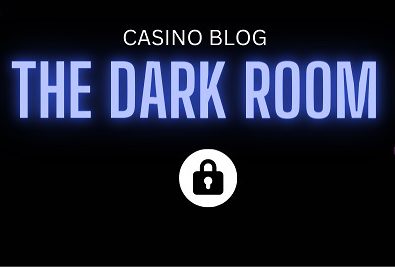 Walk into any casino—whether it’s a buzzing floor in Vegas or a sleek online lobby glowing on your phone—and you’ll notice something kind of magical. It’s not just the games, or the lights, or the fact that someone always seems to be cheering because they hit something big. There’s a rhythm to the whole thing, a subtle sense that you’ve stepped into a tiny world engineered to keep you curious.
Walk into any casino—whether it’s a buzzing floor in Vegas or a sleek online lobby glowing on your phone—and you’ll notice something kind of magical. It’s not just the games, or the lights, or the fact that someone always seems to be cheering because they hit something big. There’s a rhythm to the whole thing, a subtle sense that you’ve stepped into a tiny world engineered to keep you curious.
And honestly? That curiosity is half the adventure.
The Thrill That Comes From “Almost”
One of the funniest things about gambling is how much power the *near miss* has over us. You know the feeling: two matching symbols on the slot reels, and the third one *just* skims past. Close enough to make your heart jump, but not quite close enough to pay out.
That moment works almost like encouragement. You didn’t win—but you didn’t *lose*, either. You just “almost won.” And our brains treat that tiny spark of almost-success like a hint that the next spin is worth sticking around for.
Games know this. Designers use it on purpose. But even knowing that, it still gets us, because humans are wired to chase patterns and possibilities. Near misses feel like clues, even when they aren’t.
Control Where We Don’t Actually Have It
Walk down any table area and you’ll see people blowing on dice, tapping the felt, rearranging chips in little rituals. These micro-habits aren’t silly; they’re coping mechanisms for uncertainty. We love the *feeling* of control, even in places where the outcomes are pure probability.
Card games give this a boost because some skill actually is involved—so when you win, it feels earned. When you lose, it feels fixable. That combination, skill mixed with luck, hits a very sweet spot in our brains.
The Environment That Gently Pulls You In
Casinos are designed like theme parks for adults. Soft carpets, warm lighting, and that careful blend of noise—background music, machine dings, people reacting to wins—creates an atmosphere that’s energizing but not overwhelming.
Online casinos do this in their own way:
* clean, glowing interfaces
* satisfying animations
* sound cues that lightly reward your brain
* a bunch of choices always at your fingertips
It’s comfort mixed with excitement, which is a rare combo.
Storytelling in Game Form
Modern casino games aren’t just numbers and symbols anymore. They’re little adventures: Egyptian tombs, Norse myths, cosmic exploration, fairy tales, cyberpunk worlds. You’re not just spinning; you’re taking part in a micro-story.
And because the stakes are real, even small ones, every twist feels like it matters. It creates a kind of engagement that’s deeper than most people realize.
Why We Keep Coming Back
Ultimately, casinos tap into a cocktail of feelings:
* hope
* suspense
* curiosity
* satisfaction
* the desire to master a system
None of this is inherently bad. Humans have always loved games of chance—dice games were around long before electricity, let alone high-resolution slot reels.
What really pulls us back is that casinos—physical or digital—give us a break from predictability. They’re little pockets of possibility. Places where the next moment might genuinely surprise you.
And honestly, that sense of “maybe” is something we don’t get enough of in everyday life.
Photo: Freepik


 Playing blackjack isn’t just about knowing the rules and following strategies; it’s also about understanding the psychological factors that can influence your decisions. Whether you’re aware of it or not, your mind plays a crucial role in how you approach the game, and these psychological influences can either help you make better choices or lead you astray. Here are five key psychological factors that can significantly impact your
Playing blackjack isn’t just about knowing the rules and following strategies; it’s also about understanding the psychological factors that can influence your decisions. Whether you’re aware of it or not, your mind plays a crucial role in how you approach the game, and these psychological influences can either help you make better choices or lead you astray. Here are five key psychological factors that can significantly impact your 